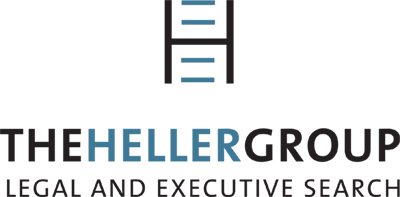In speaking with candidates and colleagues it seems that one of the by-products of more time spent in the home office, and the current uncertainty, has been introspection. Many of us have taken some time to evaluate career aspirations and reflect on the future. Instead of letting these thoughts wander in and out of your minds why not seize the opportunity to turn these musings into actionable goals? At a time when many of us feel we have lost control over aspects of our life, this is a great way to refocus on what you want and what you can do to get there.
Getting Started
It may be that following the completion of law school and articling you haven’t set new goals for your career. You’re not alone. It is easy to get swept up in the day to day demands of your practice and it can almost seem as though goals start to set themselves. However, these will often be client driven objectives and it is important to refocus your goals on you! If you are new to goal setting, most articles recommend the following simple guidelines:
S – Specific
M – Measurable
A – Attainable
R – Relevant
T – Timely
Taken together, the SMART guidelines will help you create realistic and achievable goals and prevent you from falling into the trap of making vague goals and then feeling discouraged when you do not see progress. This article sets out a comprehensive outline of how to approach goal setting and, importantly, how to implement various points of accountability to ensure success. There are lots of free resources available online to assist you in developing goals including simple spreadsheets to help you starting tracking these goals.
Staying Accountable
After setting goals, it’s important to ensure you are revising them and re-evaluating throughout the year. Are the goals still accurate? What progress have you made? What roadblocks have you encountered? Actively engaging with your goals will ensure that you remain on-track and accountable to the results.
If you find yourself struggling with the process, it may be worthwhile to engage a career coach who can help you hone in on your goals and shape your plans. Depending on the goals you set, you may also want to tap into the Law Society of Ontario’s Coach and Advisor Network. This resource is particularly helpful if your goals include the implementation of best practices.
Goals and Your Job Search
As you go about identifying and setting new goals, you may find this leads you to considering a change in job if your goals do not align with your current role. If that is the case, then consider having a conversation with a recruiter! We are well placed to have early stage discussions about the type of role or firm that would fit well with your goals as well as current market conditions. As we outlined in a previous blog we recommend contacting a recruiter in the early stages of your job search.
The importance of having clearly defined goals, and being able to explain why a job move satisfies those goals, cannot be understated in an interview setting. Candidates who are unable to explain why they are looking to make a move may be viewed as “flighty” or be generally seen as lacking focus during an interview. This can be difficult feedback to overcome. If you are using SMART goals, you will be able to clearly articulate how a role aligns with your goals and you will also be able to demonstrate proactive behaviour by discussing steps you have taken to-date.
Although it can seem a bit daunting, by taking a bit of time now to define and document your goals you will be setting yourself up for success with a clear roadmap for your future.
Jennifer is a Recruitment Consultant with The Heller Group. She is actively involved in the recruitment and placement of lawyers into law firms and corporations. In her spare time, Jennifer enjoys hiking with her two dachshunds.
Image via Bigstockphoto.com


